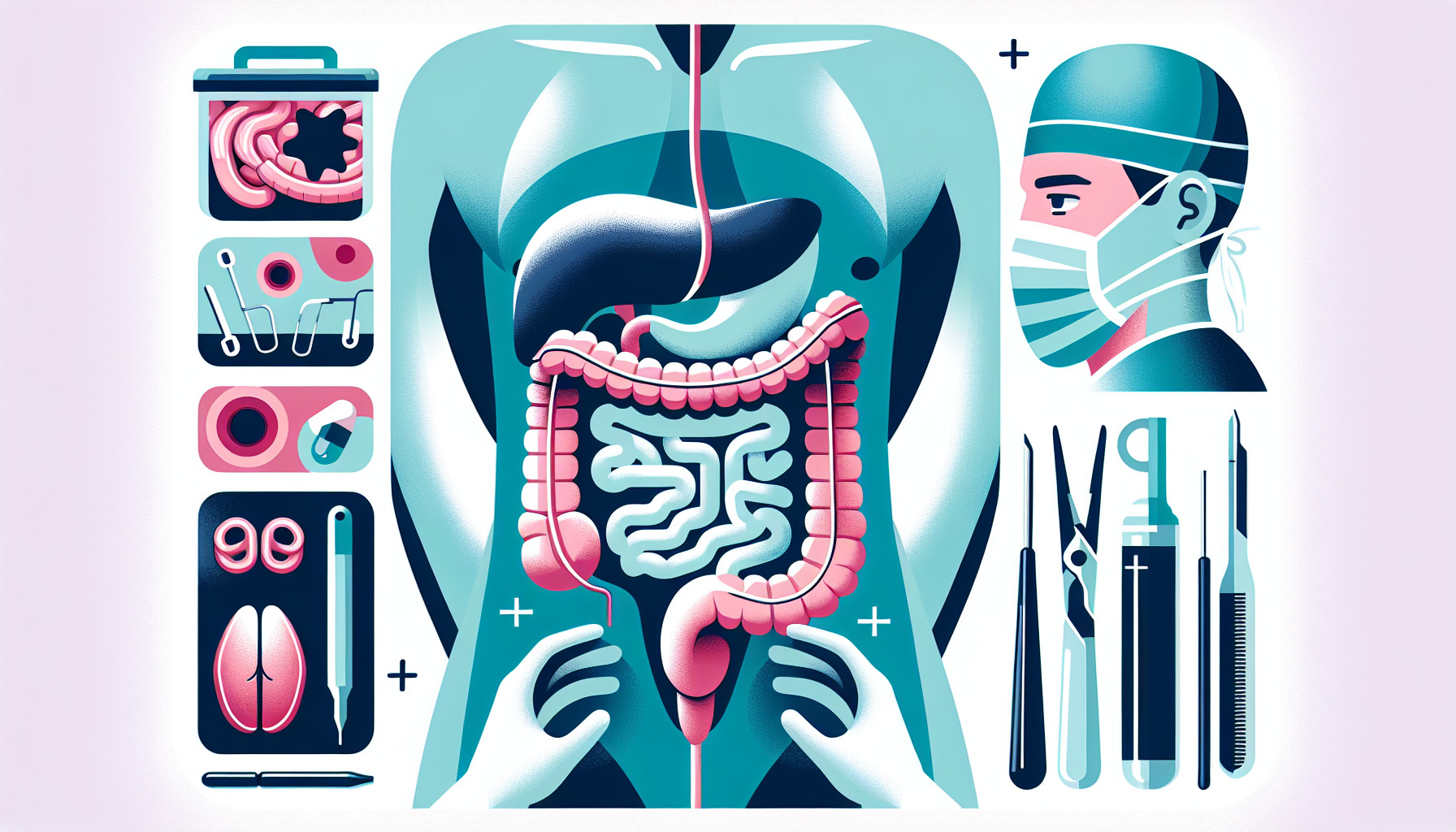Our Summary
Chronic intestinal pseudo-obstruction (CIPO) is a severe condition where the intestines can’t properly move food through the digestive tract, even though there’s no physical blockage. This rare condition can affect both children and adults. It can either have no identifiable cause (primary/idiopathic) or be associated with other diseases (secondary). Diagnosis involves identifying symptoms that are similar to a blocked intestine, such as a swollen intestine filled with air/fluid, but without any actual physical blockage. Treatment methods for CIPO include dietary changes, medication, and surgery, often requiring a team of different medical professionals.
FAQs
- What is Chronic intestinal pseudo-obstruction (CIPO)?
- What are the symptoms of CIPO and how is it diagnosed?
- What are the treatment methods for CIPO?
Doctor’s Tip
One helpful tip a doctor might tell a patient about intestinal transplant is to follow a strict post-transplant care plan to prevent rejection of the new organ. This may include taking immunosuppressant medications as prescribed, attending regular follow-up appointments, and making healthy lifestyle choices to support overall health and immune function. It’s important to communicate any changes in symptoms or concerns with your healthcare team promptly to ensure the best possible outcome after an intestinal transplant.
Suitable For
Patients with short bowel syndrome, a condition where a significant portion of the small intestine is missing or non-functional, may also be recommended for an intestinal transplant. This can be caused by conditions such as intestinal ischemia, Crohn’s disease, or surgical removal of a portion of the intestine. Short bowel syndrome can lead to malabsorption of nutrients, dehydration, and electrolyte imbalances. Patients with short bowel syndrome may not be able to maintain adequate nutrition and hydration through oral intake alone, and may require intravenous nutrition (parenteral nutrition) for an extended period of time.
Other conditions that may warrant an intestinal transplant include intestinal failure due to complications from previous surgeries, congenital defects of the intestine, or severe infections or inflammation that have damaged the intestines beyond repair. Patients who have failed to respond to other treatments or have complications from long-term parenteral nutrition may also be considered for an intestinal transplant.
Overall, intestinal transplants are considered for patients who have severe intestinal dysfunction that significantly impacts their quality of life and ability to function. The decision to undergo an intestinal transplant is made on a case-by-case basis by a multidisciplinary team of healthcare providers, including transplant surgeons, gastroenterologists, nutritionists, and social workers.
Timeline
Before intestinal transplant:
- Patient experiences symptoms of chronic intestinal pseudo-obstruction, such as severe abdominal pain, bloating, nausea, vomiting, and constipation.
- Patient undergoes various diagnostic tests, such as imaging studies, blood tests, and motility studies, to confirm the diagnosis of CIPO.
- Patient undergoes treatment for CIPO, which may include dietary modifications, medications to manage symptoms, and surgical interventions to remove any blockages or strictures in the intestines.
After intestinal transplant:
- Patient is evaluated for a potential intestinal transplant as a last resort treatment option for CIPO.
- Patient undergoes a thorough evaluation process to determine their eligibility for an intestinal transplant, including physical and psychological assessments.
- Patient is placed on the transplant waiting list and waits for a suitable donor intestine to become available.
- Patient undergoes the intestinal transplant surgery, which involves removing the diseased intestine and replacing it with a healthy donor intestine.
- Patient undergoes a period of recovery in the hospital, followed by long-term follow-up care to monitor for any complications or rejection of the transplanted intestine.
- Patient may need to take immunosuppressive medications for the rest of their life to prevent rejection of the transplanted intestine.
- Patient gradually resumes normal activities and enjoys an improved quality of life with a functioning intestine.
What to Ask Your Doctor
What are the potential risks and benefits of an intestinal transplant for my specific case of chronic intestinal pseudo-obstruction (CIPO)?
How long is the recovery process following an intestinal transplant surgery?
What percentage of intestinal transplant patients experience rejection of the transplanted organ, and how is this typically managed?
What kind of follow-up care will be necessary after an intestinal transplant surgery?
How will an intestinal transplant impact my overall quality of life and ability to eat and digest food normally?
Are there any alternative treatment options to consider before proceeding with an intestinal transplant?
How many intestinal transplants has the medical team performed, and what is their success rate?
Are there any specific lifestyle changes or dietary restrictions I will need to adhere to post-transplant?
What is the average lifespan expectancy for patients who undergo an intestinal transplant for CIPO?
What kind of support services are available for patients and their families before, during, and after an intestinal transplant surgery?
Reference
Authors: Pironi L, Sasdelli AS. Journal: Gastroenterol Clin North Am. 2019 Dec;48(4):513-524. doi: 10.1016/j.gtc.2019.08.005. Epub 2019 Oct 8. PMID: 31668180
